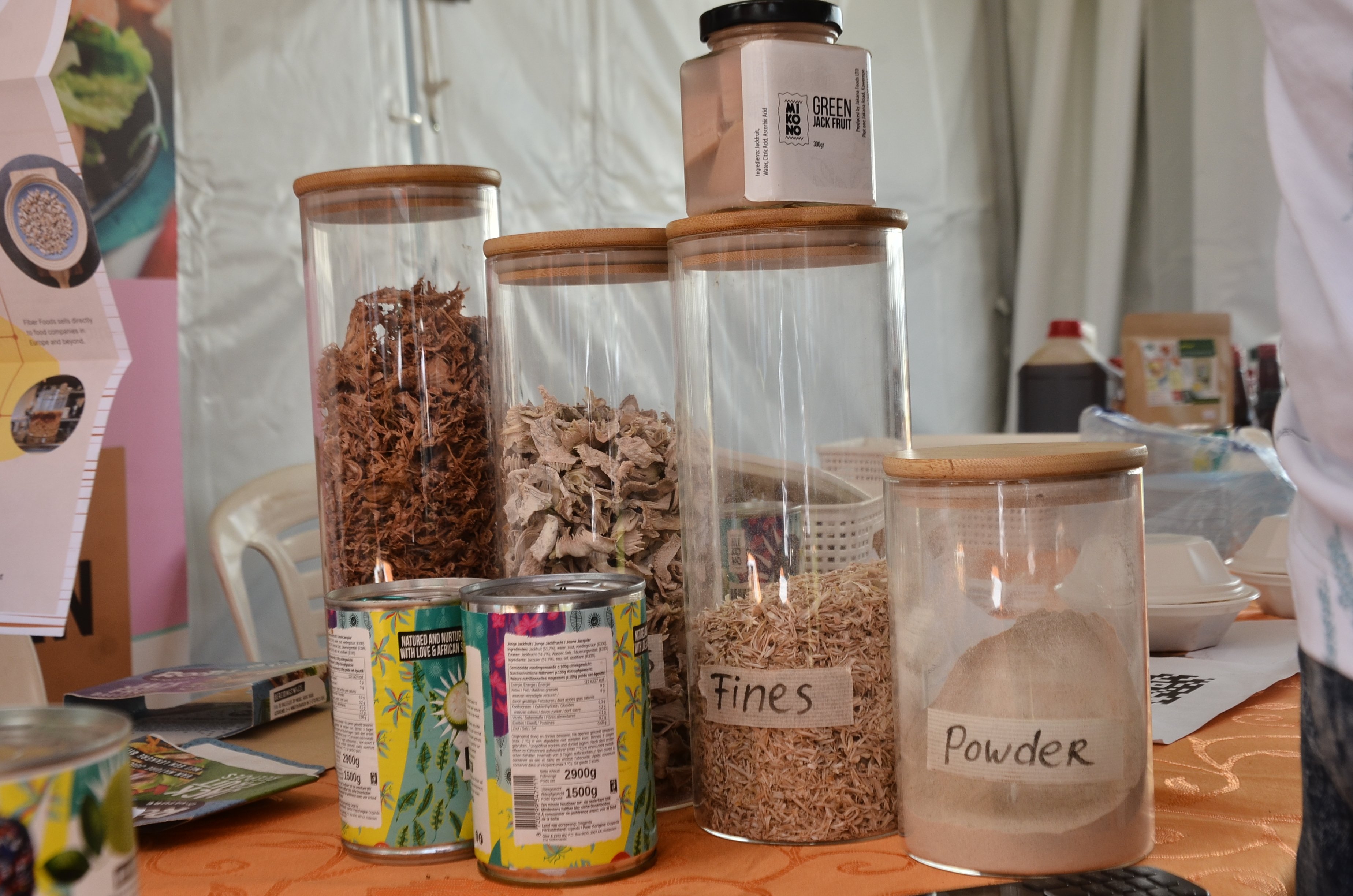Prime
Dehydrated jackfruit: From tree to plate

Dyhydrated jackfruit comes in different shades. Left. A farmer displays some of the dehydrated jackfruit flakes. Photos/Esther Bridget Nakalya
What you need to know:
- Using jackfruit as an ingredient in plant-based or hybrid food products accelerates the transition towards less meat and a more sustainable food system.
- Currently, the world of food is transitioning towards less meat and more plant-based alternatives. Jackfruit has a solid meaty bite and absorbs flavours and spices perfectly.
Jackfruit is one of the most undervalued crops in Uganda. Most of the harvested jackfruit is for home consumption, while some is sold in local markets, and others feed it to animals.
Mostly, jackfruit flakes are mainly consumed fresh with the inedible fruit portions wasted or fed to animals.
But do you know that with value addition, jackfruit can be used as an ingredient to make delicious sausages, burgers, and samosas among others?
Fiber Foods is already making progress by exporting dehydrated Uganda jackfruit to the Netherlands at a premium with a longer shelf life of up to one year.
The company offers food companies in the Netherlands dehydrated jackfruit as a perfect ingredient for a plant-based meal as they aim at reducing meat consumption and the related carbon footprint.
Using jackfruit as an ingredient in plant-based or hybrid food products accelerates the transition towards less meat and a more sustainable food system.
Currently, the world of food is transitioning towards less meat and more plant-based alternatives. Jackfruit has a solid meaty bite and absorbs flavours and spices perfectly.
Last week, Fiber Foods launched its first dehydrated jackfruit value chain from Uganda for export to the European market.
According to Ineke Aquarius, Fiber Foods co-founder, young dehydrated Jackfruit is a healthy ingredient for bringing texture to alternative meat products making it a favourite of food companies and chefs looking to offer clients tasty and sustainable meal options.
Fiber Foods' young jackfruit is peeled, cut, and dehydrated immediately after harvesting, allowing it to maintain its natural neutral taste while reducing the transport footprint to Europe by almost 90 percent.
"Our dehydrated jackfruit is a game-changer in the food industry. It offers chefs and food companies the opportunity to create delicious, sustainable plant-based alternatives to meat, and we are thrilled to be the first company in the world bringing this innovative product to the European market,” Aquarius said during the launch.
Mr Kenneth Naturinda, sourcing lead at Fiber Foods, said the company works with different jackfruit suppliers to ensure that they collect the right quality and quantity of jackfruit.
“We have to make sure that they are well trained about the specific requirements that we are interested in. The jackfruit has to be young, raw, about 2kgs,” he said.
Mr Naturinda said they are currently looking for 16 tonnes weekly depending on the orders they have.
Fiber Foods and its suppliers make sure that quality controls happen during harvesting like removing rotten jackfruit, removing jackfruit that is injured, or that which does not meet the quality criteria. Later, it is taken to the main processing centre where it is prepared for dehydration.
According to Mr Naturinda, the majority of jackfruit originates from the central and eastern regions of Uganda, specifically Buikwe, Kayunga, Jinja, Kamuli, Mayuge, Bugiri, Paliisa, and Soroti.
“Our suppliers receive a payment of Shs1,500 per kilogram,” he said.
With this innovation, Aquarius says small-scale farmers can earn extra income, and currently, about 1500 farmers are benefiting from this initiative.
“Young jackfruit offers farmers a side business with a fair price. Most farmers already have a few jackfruit trees on their land, which could now generate extra cash, without having to invest in it,” she said.





